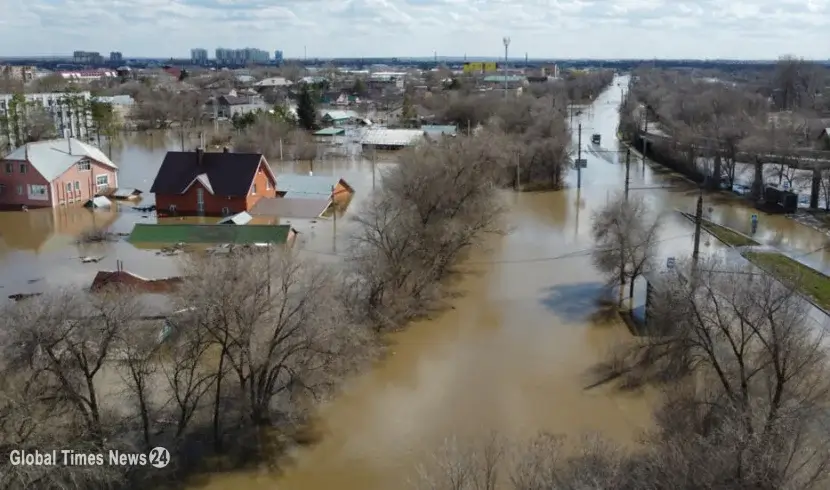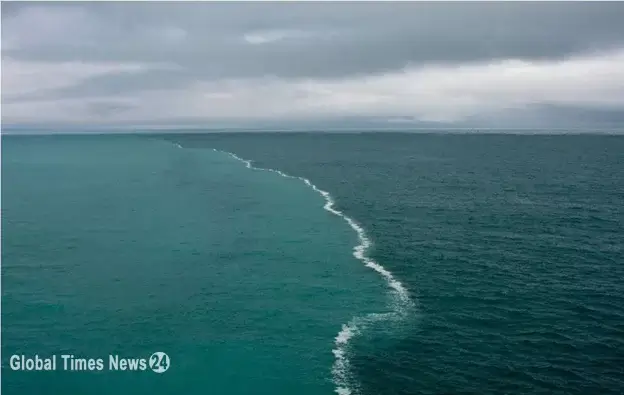What is Iran's secret weapon that it is threatening Israel with?
Is Iran's secret weapon mere rhetoric or something more substantial? A mix of secrecy, tension, and uncertainty.
Table of Contents (Show / Hide)

On April 17, 2024, tensions between Israel and Iran escalated, bringing the two countries closer to the brink of war. Iran is reportedly threatening to unleash a secret weapon that has never been used before.
Abolfazl Amouei, spokesperson for the Iranian Parliament's National Security and Foreign Policy Committee said: "The Islamic Republic "will confront any Israeli aggression and respond to it. We are ready to use weapons that we have not used before."
What are Iran's secret weapons?
Is Iran hinting at weapons of mass destruction?
Iran has been suspected of pursuing nuclear weapons, but it is not confirmed whether they currently possess one. The country has issued threats to use weapons that it has never used before. To understand the current situation better, we should look at the weapons Iran has used before in what is now shy of war.
On Sunday, Iran launched an attack on Israel using more than 120 ballistic missiles, 170 drones, and 30 cruise missiles. Reports said that this operation was dubbed "Operation Truthful Promise".
Iran's state agency IRNA has shared details of the weapons that Iran had used for the operation, the first kind being the EMAD missiles, these are medium range missiles, they have a range of up to 1700 kms. They can carry warheads of up to 270 kgs. IRNA informed that these missiles were launched from Iran's underground missile silos.
On Sunday, Iran also used Kheibar Shekan ballistic missiles. These missiles have a range of up to 1800 km.
Interestingly, both of these missiles were featured in IRNA's infographic that was published in the run-up to the weekend attack. The infographic also showcased the Paveh cruise missiles, which Iran also utilized. The Paveh cruise missiles have a range of up to 1650 km and can reach speeds of up to 900 km/h.
Additionally, Iran employed drones for its attack on Israel, specifically the Shahed 132 drones. These drones are the same killer drones that Russia is using against Ukraine. However, the world is already aware of these weapons, so they cannot be the weapons Iran is threatening Israel with. What then are Iran's secret weapons that the country has never used before?
Could Iran be referring to the Nuclear weapons?
Iran's official stance denies the possession and intention to develop nuclear weapons. However, a closer analysis reveals facts that Iran cannot deny. One of the facts is that Iran has been ramping up for the production of highly enriched Uranium for a while now.
This chemical element is vital in the creation of nuclear bombs, yet it also serves as fuel for nuclear power generation, a key component of Iran's civilian nuclear program aimed at harnessing nuclear energy.
The numbers also tell a different story. Between 2019 and February 2024, Iran's enriched uranium stash skyrocketed from 997 kilograms to 5525 kilograms. Notably, uranium enriched to 60 percent, as attained by Iran, approaches the threshold of weapon-grade material.
In December 2023, the International Atomic Energy Agency (IAEA) reported that Iran had enriched uranium to 60% purity, a significant milestone in nuclear capability. The UN body also warned that Iran possessed enough enriched uranium to construct three atomic bombs. Alarmingly, Iran's enriched uranium stockpile has surged from 88kg to 123kg within just one year, marking a worrisome 38% increase.
Observers now fear that Iran stands at the precipice of nuclear weapon capability. Some even speculate that Iran could produce enough weapons-grade uranium for a single bomb in less than a week, or some 5 to 6 bombs in less than a month.
What about the bomb itself?
Experts estimate that Iran could potentially develop a nuclear bomb in less than six months. However, determining the exact starting point of this timeline remains uncertain, no one ever builds a nuclear bomb publicly, least of all Iran, which was once tightly bound by a nuclear accord.
Remember the infamous Joint Comprehensive Plan of Action (JCPOA), Iran entered this agreement with five permanent members of the Security Council and Germany under it six years ago. Under this agreement, Iran was permitted to enrich uranium for energy purposes, subject to restrictions on its nuclear facilities. In exchange, Iran received relief from international sanctions. However, the JCPOA faced a significant setback when then-US President Donald Trump withdrew the United States from the deal, effectively rendering it on the brink of collapse.
Today, the JCPOA is all but defunct, and attention has shifted to Iran's nuclear enrichment facilities, particularly the fuel enrichment plant, one of the country's three such installations. Nutans, located in Iran's Central Isfahan Province. It is a heavily protected facility on the edge of Iran's great salt desert. It was reportedly designed as a secret factory and nuclear inspectors have raised concerns about activities at this facility which hint at worrying possibilities. Western observers in fact say, Iran has all it needs to build a bomb.
Iran's nuclear program traces its origins to the 1980s, and while Iran officially denies possessing nuclear weapons, it has without any doubt, frequently utilized its nuclear programs as a form of leverage in its interactions with the West. The question now arises, could Iran be doing the same now as it tries to deter Israel from an attack? or does Iran really have a secret weapon that it is not afraid to use against Israel?
So what is this Iran's secret weapon?
In the past, Israel has pledged to prevent Iran from acquiring nuclear weapons. Additionally, Israel's spy agency has allegedly assassinated Iran's nuclear scientist.
So, could the escalating tensions between these two countries be a turning point for Iran's nuclear program? Could it trigger a new arms race in West Asia? Or could it initiate a chain reaction that is far more lethal and dangerous?
On Sunday, Iran barred inspectors from entering its numerous nuclear facilities, citing security concerns. Additionally, Iran has temporarily shuttered these facilities. However, the activities occurring within them remain a matter of speculation. Is the Iran's secret weapon its war rhetoric or does it possess an ultimate deterrent? the answer to this question is open to interpretation.
URL :
News ID : 3199









 What is the Origin of Cynicism
What is the Origin of Cynicism
 UK Imposes New Sanctions on 2nd Anniversary of Russia's War on Ukraine
UK Imposes New Sanctions on 2nd Anniversary of Russia's War on Ukraine
 Bangladesh Government Bans Opposition Party Jamaat-e-Islami, Accusing it of Violent Activities
Bangladesh Government Bans Opposition Party Jamaat-e-Islami, Accusing it of Violent Activities
 Russian Authorities Grapple with Widespread Flooding Crisis
Russian Authorities Grapple with Widespread Flooding Crisis
 UK politicians, journalists sanctioned by Russia
UK politicians, journalists sanctioned by Russia
 Investment in nuclear weapons exceeded $82 billion in 2022
Investment in nuclear weapons exceeded $82 billion in 2022
 Major sports events of 2022
Major sports events of 2022
 Why don't the Pacific and Atlantic Oceans mix?
Why don't the Pacific and Atlantic Oceans mix?
 Nakba 75: Palestinian citizens of Israel are exiles in their own land
Nakba 75: Palestinian citizens of Israel are exiles in their own land
 What the US could learn from China's nuclear power expansion
What the US could learn from China's nuclear power expansion
